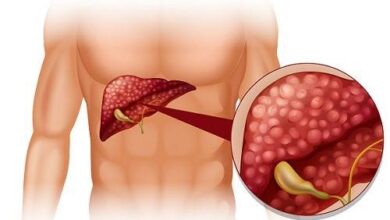Healthy and psychological pillars and the successful start recipe for study

After the long interruption of studying during the summer vacation period, students return to the new academic year, and although thinking about how to equip the tools and school supplies capture the thinking of family members, the medical, nutritional and psychological aspects are also the social, physically and morally successful start of the beginning, and in the coming lines experts and specialists highlight this topic in detail.
Dr. Ayman Fikry: Vacuments are a protective protection from infection
Dr. Ayman Fikry, a pediatrician, says that children and adolescents face a number of health challenges that parents and teachers need to pay attention to, and include the most common problems of respiratory infection, such as: colds, influenza, sore throat, sinusitis, as well as diseases of the digestive system or intestinal infections.
He continues: The beginning of the study is linked to psychological pressure and anxiety due to the beginning of the study, which negatively affects immunity, sleep quality, food appetite, lack of interest in proper nutrition, especially breakfast, and neglecting to drink sufficient amounts of water, increases the chances of malnutrition, anemia, vitamin D deficiency, iodine and calcium, and some are exposed to obesity problems in cases of excessive eating of unhealthy food.
Dr. Fikry explains that there are many unhealthy practices that can raise the chances of infection in school students, among them not washing hands regularly, sharing tools and personal purposes, and not wearing a muzzle when there are respiratory symptoms, poor ventilation in the classes, and therefore must be committed to following some simple and effective recommendations to maintain children’s health, which is to obtain adequate sleep hours, balance With soap and water before eating and after going to the toilet, and staying at home when there are satisfactory signs, to avoid the transmission of the infection to others.
He adds: The pediatrician must be reviewed periodically to follow up the child’s weight, health condition and early intervention in the event of symptoms of symptoms, and vaccines (vaccinations) play an important role in protecting young people from infection from diseases, such as: measles, mumps, whooping cough, and seasonal influenza, especially those with chronic health conditions.
Dr. Sameh Abu Al -Fotouh: The effects of the risk of the bag extend for a long time
Dr. Sameh Aboul Fotouh, a consultant orthopedic surgery, notes that many children and adolescents suffer from back pain, and the school bag is one of the common reasons for this problem, and therefore it is worth noting that following a “one size that suits everyone” may be harmful, the bag must be appropriate for the size of the child’s body and its age stage, which is as follows:-
The kindergarten bag (3-5 years) must be very small and lightweight, as its use is limited to carrying the food box and some simple purposes, and its weight does not exceed 10% of the child’s weight, and with a total of 1-1.5 kg.
– The size of the bag can be increased and its capacity gradually, and in the primary stage (6-11 years), the general rule remains that its weight does not exceed 10-15% of the child’s weight, and its width is less than the width of the trunk, and it settles comfortably on the back without hanging below the hip level, and for the upper grades of the primary, it is sufficient for a capacity ranging between 15-20 liters.
– In the preparatory and secondary stage (12-18 years), the amount of books and materials increases significantly, and this often includes laptops, and therefore the bag must be sufficient to accommodate these purposes, while maintaining the maximum weight so that it does not exceed 15% of the student’s weight, and control them so that the bottom is slightly higher than the waist level.
Dr. Abu Al -Fotouh, that carrying the school bag in an incorrect or overly weight, causes serious health problems whose effects extend in the long run, and the spine in childhood and adolescence is more likely to be affected, given that the bones and muscles are still in the process of growth and development, and therefore their choice must be according to the health and priority standards of safety and comfort factors, taking into account the design that relieves pressure on the body and maintains health The spine, and the most prominent specifications are:-
– Two broad and two shoulder campaigns are one of the most important basic conditions for the bag, and two modifications, to ensure weight distribution equally to the shoulders and avoid stress or injury.
– Sadr belts and a adjustable waist to help transfer part of the weight of the bag from the shoulders to the most stable pelvic area, as it prevents sidewalks, which improves balance and enhances the correct position of the body.
– A looted and supported rear board to provide additional comfort, and protect the back from pressure or prick sharp tools (such as books or rulers), preferably equipped with a network lining that allows good ventilation, especially in hot climates.
– It allows the division and organizing them better, the weight is distributed evenly, and heavy purposes must be placed near the child’s back to reduce the pressure on the spine.
The bag should be made of a light material in order not to add additional weight unnecessary.
Dr. Abu Al -Fotouh confirms that the bags equipped with wheels have special risks, such as spinal sprain when pulling the bag or the risk of stumbling, therefore, the dorsal bag remains designed according to the comfortable standards, which are used properly, the best option for the health of the child’s back in most cases.
Rahaf Al -Tuwairqi: Breakfast is the key to activity and collection
The clinical nutritionist, Rahaf Al -Tuwairqi, shows that breakfast contributes to stimulating the child’s metabolism, providing him with basic nutrients, supporting his cognitive functions, improving the ability to focus, raises the level of academic performance, and increases energy throughout the school day.
She continues: Breakfast should consist of whole grains such as oats, or whole wheat bread, as it is an important source of fiber and energy, as well as proteins such as: eggs, yogurt, or nuts butter, to help feel full and support muscle growth, and fresh fruits and vegetables to supply the body with vitamins and minerals necessary for public health.
Unhealthy eating habits in school -age children
Rahaf Al -Tuwairqi explains that there are some unhealthy eating habits that must be paid attention to and corrected, which is to overcome breakfast that leads to low energy and poor ability to focus during the study, and causes dependence on ready -made snacks such as potato chips or sugar -rich biscuits as a disorder in energy levels and enhances unhealthy food patterns, and causes excessive high -diabetic drinks of weight gain and problems In the teeth.
She continues: We recommend encouraging children the basic nutrients for healthy growth and development, such as: calcium for strong bones, through dairy products and leafy vegetables, and important iron for brain functions and cognitive abilities, and its sources include low fat, legumes, breakfast pills, vitamin (A, C) fruits and vegetables such as carrots and oranges, to support the immune system, proteins, proteins, proteins The basic growth and muscle building, found in meat, legumes, eggs, drinking water or natural juices as a healthy alternative.
Rahaf Al -Tuwairqi emphasizes that snacks play an important role in maintaining the level of energy throughout the school day, and one of the most useful ingredients that is recommended to include them is complex carbohydrates such as biscuits made of whole grains or fruits, and healthy fats such as: nuts or seeds, as they give a sense of satiety for a longer period and support the health of the brain, and low -fat proteins, such as: yogurt, Or cheese, to maintain energy level without sudden drop due to sugar.
Lack of sleep disrupts hormonal balance
Dr. Wahid Fayyad, the public health doctor, shows that the lack of sleep greatly affects the academic performance of children and adolescents, as it weakens the ability to focus, reduces attention, and affects the retaining information, which makes it difficult to interact and absorb lessons, whether in the class or while studying at home, as it causes mood swings and behavioral problems, as it results in more tension, emotion or emotional sensitivity.
He continues: Lack of good sleep in the long term weakens the immune system, which increases the possibility of repeated diseases, For hormonal balance, especially hormones responsible for regulating appetite and metabolism, and thus raises the danger of non -healthy nutritional habits and obesity.
Dr. Fayyad refers to the necessity of setting the schedule of children and adolescents, by offering bedtime and gradually waking up at a rate of 15 to 30 minutes a day, until reaching the appropriate dates for the school, and keeping a fixed waking time daily, even on the weekend, to enhance a healthy and stable sleep routine, and placing a calming routine before bed, such as: taking a warm bath or reading a story, to prepare the body and mind for better sleep Reducing nap periods during the day, so as not to negatively affect the quality of sleep at night.
He adds: It is advised to limit the use of screens such as TV, phones and tablets at least one hour before bedtime, as the blue light emitted from them can hinder the production of melatonin, responsible for organizing the sleep and waking course, with the need to create a healthy environment, a dark, cold and comfortable room, and encourage children to practice regular physical activity during the day, and avoid stressful exercises just before drowsiness. With the possibility of serving a healthy and healthy meal when needed before bed.
Psychological support fights anxiety and tension
Dr. Yasser Shafi, a totalitarian medicine specialist, states that the season of returning to school can cause anxiety and tension in many children, and the first day is exhausting the young, and some of them may complain of abdominal pain because moving away from the house makes them fear, while the older person faces a challenge in forming new friendships and adapting to new teachers, while adolescents suffer from peer pressure Identity, and the desire to adapt, and academic expectations are weighted as children of all ages, which sometimes leads to anxiety or declining self -confidence.
Dr. Shafi confirms the role of parents in preparing their children to enter or return to school safely, and the feelings of fear that the young people can overcome with the presence of familiar things, as a game or a picture, in their bag, as children in the primary stage benefit from open dialogues about their hopes and concerns, and refine their basic skills to feel prepared, and communicate again with their friends before the start of the semester, and needs Adolescents are sincere and without judgments, as well as encouraging healthy habits for sleeping, nutrition and exercise, and ensuring psychological support and directing them to set small and realistic goals that adopt their self -confidence.
He continues: Parents must maintain positive communication with children, to encourage him to open up, face challenges, and to monitor any changes in mood, sleep or appetite, as they are indications of internal tension, as well as follow -up with teachers to understand how the child deals with the semester, flexibility in facing challenges, and training them to seek help when needed.




